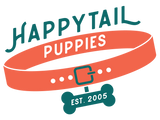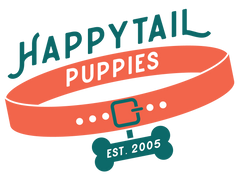Nutrition and Feeding Tips for Miniature Goldendoodle Puppies: Choosing the Right Diet
If you are a first-time miniature Goldendoodle puppy owner, it may be very difficult to know how to feed that dog. Puppy diets are also very imperative since they determine the health and growth of the pet apart from giving it good health. Puppies also need the right type of diet so they can receive the nutrients they need to grow healthy, so read on below to learn more about what type of diet your puppy should be taking.
Another crucial factor that you must consider is the feeding schedule that you have to prepare strategically in order to achieve a balanced nutrient intake. Mini Goldendoodle puppies need to be fed more often than an adult dog, so you need to feed your Mini Goldendoodle puppy 2-3 times a day. When your puppy is a bit older, you transition to feeding him twice a day and this will have to continue until the puppy is about twelve weeks old.
Structuring a well-balanced diet schedule to feed your Miniature Goldendoodle puppy effectively to their health. The puppies need frequent meals compared to the adult dogs, as you can feed your puppy around two to three times a day. You should minimize the number of meals to about 2 per day while the puppy grows. In our post today, we are going to cover the main fundamentals of the dietary needs of Miniature Goldendoodle puppies and the foods you should consider trying with your pup to support their overall well-being and health.
Factors Affecting Goldendoodle Dietary Needs
Goldendoodles have unique dietary requirements to support their health and well-being. Understanding their nutritional needs, including the right balance of proteins, fats, carbohydrates, vitamins, and minerals, is essential for their overall development and vitality. This guide outlines the essential factors affecting Goldendoodle dietary needs.
Different Sizes
The size of Goldendoodles varies mainly depending on their Poodle parents. The pup's size and life stages dictate the size and kind of dry food or wet food you offer them.
Coat Type
Goldendoodle pups have a range of special coat types and texture such as wavy, curly and straight hair and accessories like moustache and eyelashes. If not well taken care of, this coat may harbor odors that will be displayed by your dog, depending on the type of hair it has. Try to strive for a top-grade ingredients contained in its diet such as the omega-3 fatty acid that is importantly favored in the health of the coat and skin.
Life Stage
Let us conclude that the last aspect that should be taken into account when assessing the diet plan of your fur baby is the life cycle they are in. These puppies would, for instance, need to eat more frequently than the senior dogs or even the adult dogs. This is because the puppies are metabolizing calories at a very high rate and they are more often than not playful compared to the adult dogs. The puppies can consume up to three or four meals daily, while the senior or adult Goldendoodles would require two Meals per Day.
Elements To Seek Out in a Goldendoodle Diet
Goldendoodles need a balanced diet to maintain their health and vitality. Let’s discuss the key elements to look for in a Goldendoodle diet.
Low Carbs
As already mentioned, carbohydrates should play a critical role in your Goldendoodle's diet, but in moderation. It is often best to avoid the higher processed carbs, as they would upset the stomach's sensitivities. The higher processed carbs do not offer the right levels of nutritional value as whole carbohydrates like sweet potatoes, whole grains, and brown rice.
Healthy Fats
Fats often come with a bad reputation; however, a few would support the key nutritional needs of the Goldendoodles. They primarily consist of triglycerides that are effective to:
- Offer the dogs with greater energy
- Making dog foods tasty
- Helping them store more energy
Similar to carbs, it is all about quality and moderation. Try to opt for foods containing fats, such as fish oil, whole foods, chia seeds, and coconut oil.
Protein
Goldendoodles need a diet rich in proteins, as they can help them with their high energy levels. Top-quality proteins from food such as beef, chicken, eggs, and fish can help ensure that your pup is absorbing and using the proteins. Try avoiding foods containing meat meals since these are highly processed forms of meat that are nutritionally dense as whole-food proteins.
Omega Fatty Acids
Omega fatty acids are the main element in goldendoodles' diets, as they help support a healthier coat and skin. Fish oil is rich in omega-3 fatty acids, which support the immune system and joint health of your pup.

Frequently Asked Questions
Here are some Frequently Asked Questions regarding the dietary needs and feeding tips for Goldendoodle puppies.
What is the ideal feeding schedule for a Mini Goldendoodle puppy?
Mini Goldendoodles should be fed around three to four times daily whenever they are between eight to twelve weeks old. You can reduce their frequency of meals to two to three times daily at about twelve weeks to six months. You can feed your Mini Goldendoodle about once or twice daily after six months.
How can I accommodate a Mini Goldendoodle puppy with a sensitive stomach?
If your Mini Goldendoodle puppy has a sensitive stomach, it is better to avoid feeding them table scraps and stick to the diet consistency. You can even feed them a restricted ingredient diet or a diet that is free from common allergens like beef, dairy, and chicken.
What is the recommended portion size for feeding a Mini Goldendoodle puppy?
The recommended food size for your Miniature Goldendoodle puppy relies on their age, activity level, and weight. Typically, feed your pup one cup of food every 15 pounds of their body weight ratio. Divide the daily intake into two to three meals, depending on the puppy's age.
Conclusion
Quality and highly nutritious foods for Goldendoodles are essential to make them healthier and happier. At Happytail Puppies, we offer well-tailored and streamlined diet recommendations and training packages for our Miniature Goldendoodle puppies for sale. Following the proper dietary plans will help develop your pups in a well-socialized and healthier way.


